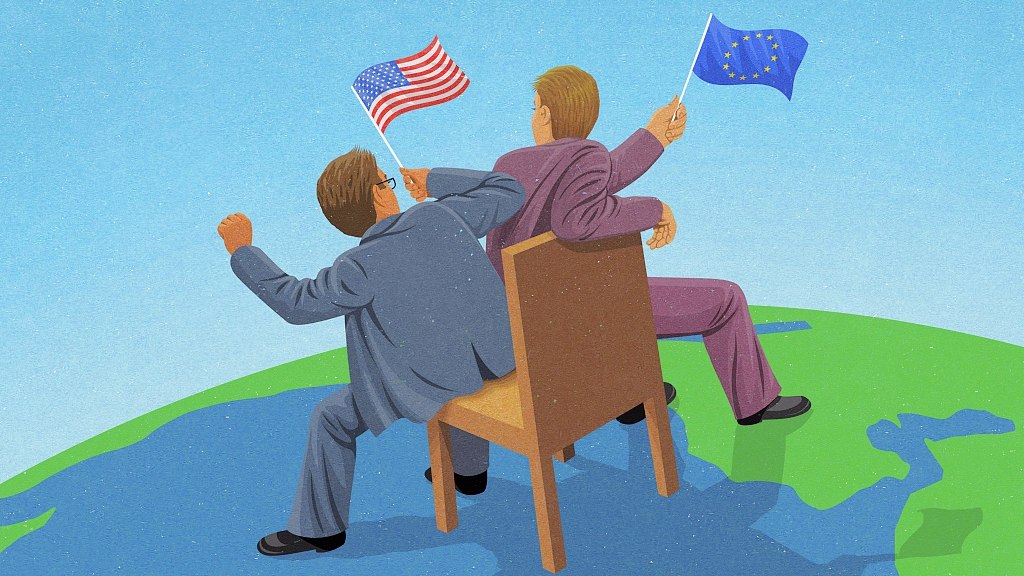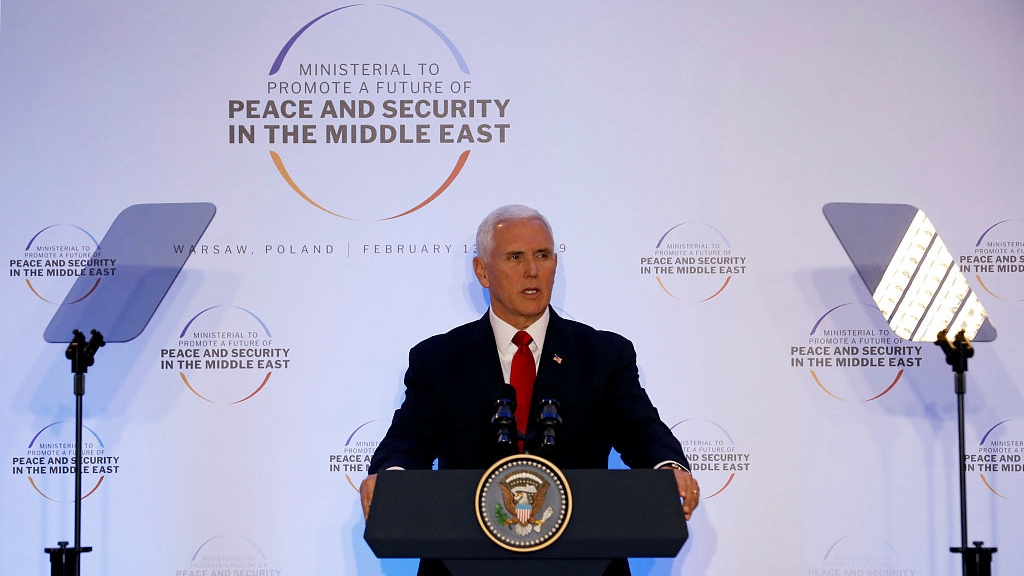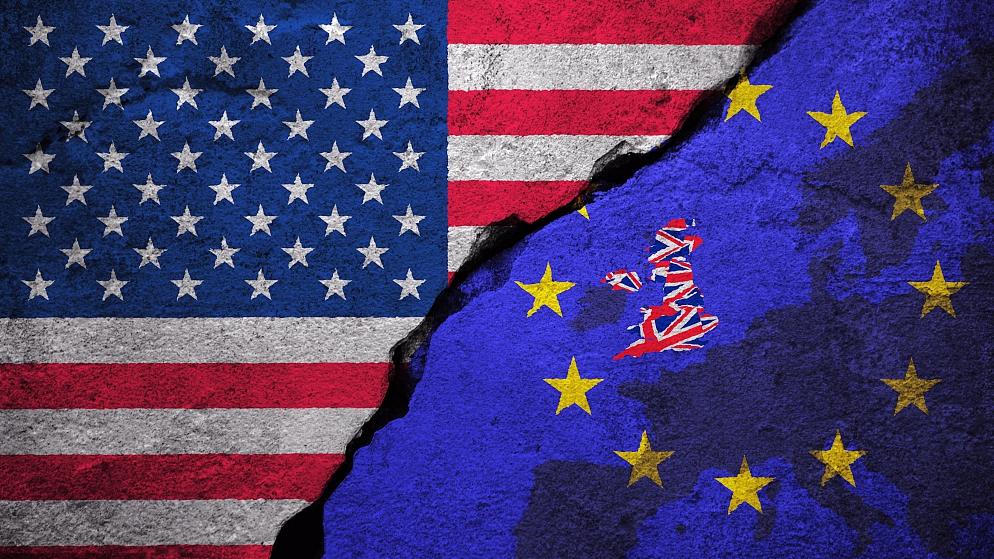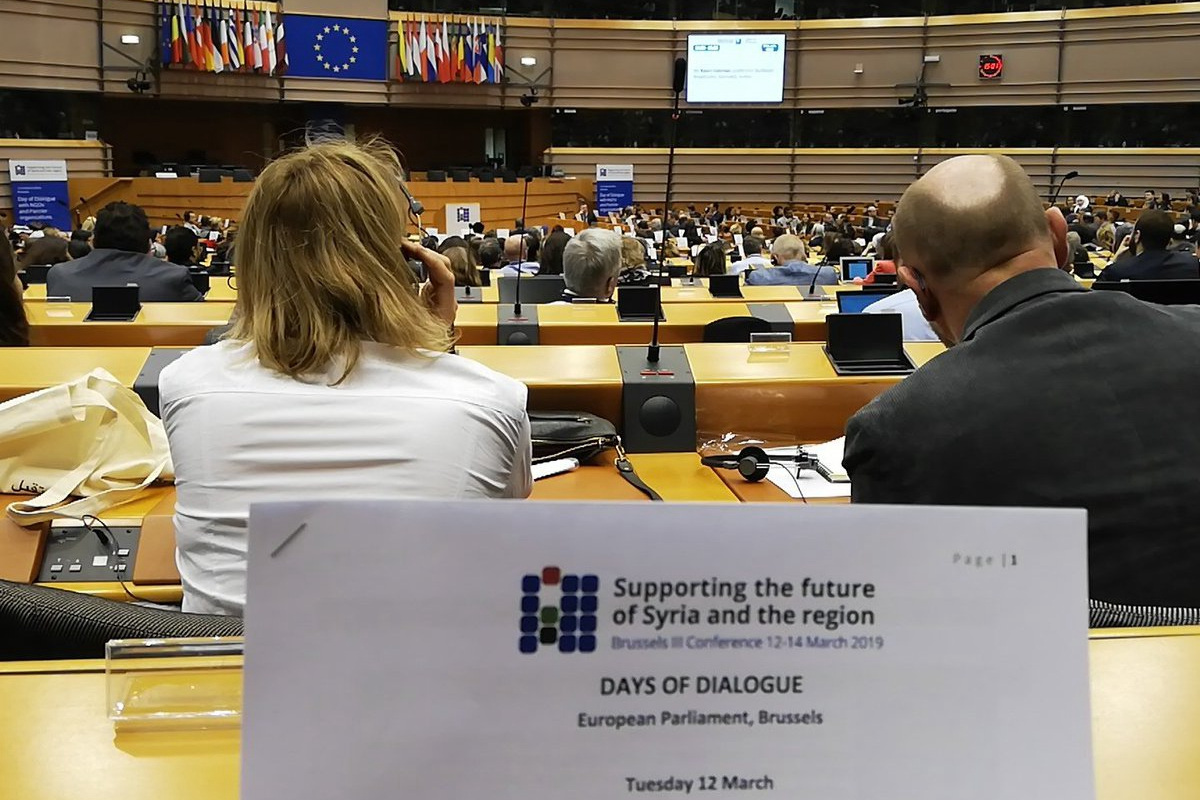
Analysis
20:43, 13-Mar-2019
Analysis: Is Europe parting ways from the U.S. in the Middle East?
By Abhishek G Bhaya

Last month, a U.S.-sponsored Middle East security conference in the Polish capital Warsaw, apparently aimed at isolating Iran despite Washington's assurance to the contrary, ironically ended up isolating the U.S. with European nations refusing to come on board.
This has prompted analysts to speculate if Washington's coercive diplomacy is compelling its European allies to gradually part ways from their trans-Atlantic strategic partner, particularly in matters related to Iran, Syria and the larger Middle East.
The U.S., which pulled out of the landmark Iran nuclear deal unilaterally last May and re-imposed sanctions on Tehran, attempted to use the Warsaw meeting of more than 60 countries to browbeat the rest of the world into submission and accept the American sanctions regime.
This certainly didn't go down well with its European allies, many of which including Germany and France, sent only low-level delegations to the conference. Even the European Union (EU) foreign policy chief, Federica Mogherini, who was a key interlocutor in the Iran nuclear deal, gave the summit a miss.
Earlier, European stakeholders of the Iran deal including the UK, France, Germany, and the EU, along with China and Russia agreed to remain in the accord and continue doing business with Iran despite the U.S. pullout.
Much to U.S. indignation, the EU in January this year created a “special purpose vehicle” (SPV) to circumvent American sanctions while allowing European countries to buy Iranian energy and also keep the nuclear deal on life support.

U.S. Vice President Mike Pence delivers a speech during the Middle East summit in Warsaw, Poland, February 14, 2019. /VCG Photo
U.S. Vice President Mike Pence delivers a speech during the Middle East summit in Warsaw, Poland, February 14, 2019. /VCG Photo
Speaking at the Warsaw conference, U.S. Vice President Mike Pence called on European allies to exit the deal while describing the SPV as “an ill-advised step that will only strengthen Iran, weaken the EU and create still more distance between Europe and the United States.”
That “distance” appears to be getting more pronounced with the passage of time.
“On Iran, the new unilateral U.S. demand that Europe should leave the nuclear deal with Tehran and shut down the mechanism set up for facilitating trade with Iran – Europe's most substantial step to save the deal – mystified the European allies,” remarked François d'Alançon, foreign correspondent for the Paris-based La Croix newspaper.
Pompeo ended the summit with a call for “more sanctions, more pressure on Iran,” but the call seems to have fallen flat on most European countries.
“The former Swedish prime minister, Carl Bildt, saw it as an attempt to ‘create an excuse for a direct and open confrontation with Iran.' Whether Europe will succeed in preventing a slide toward another war in the region remains to be seen,” wondered d'Alançon.
According to Krisitina Kausch, a senior resident fellow at the Washington, DC-based think tank German Marshall Fund (GMF), “Europe's diverging course on Iran reflects both disagreement over the most promising way to contain Tehran's aggressive expansionism as much as it does a fundamentally different approach to international diplomacy.”
'Increasingly at odds'

A convoy of U.S. military vehicles in Syria's northern city of Manbij, December 30, 2018. /VCG Photo
A convoy of U.S. military vehicles in Syria's northern city of Manbij, December 30, 2018. /VCG Photo
The French journalist emphasized that the “Europeans and Americans are increasingly at odds when it comes to the Middle East,” although he felt that “the European side is not offering an alternative way for shaping the geopolitical competition unfolding in the region.”
Drawing attention on Syria, another Middle East hotspot where both the sides are struggling to find strategic convergence in recent times, d'Alançon highlighted how Europe is politically divided and lacking the military capacity to act efficiently without U.S.'s support.
“On Syria, following the partial reversal of [the U.S.] President Donald Trump's unilateral withdrawal of all 2,000 U.S. troops, France and the United Kingdom, the only European nations with troops on the ground, are currently discussing with the United States the terms of their deployment,” he noted.
“However, the improvised stopgap measure by the White House is unlikely to restore the confidence undermined by Trump's transactional approach to foreign policy,” he argued.
Concurring with d'Alançon's assessment, Kausch too felt that the U.S. is “increasingly” losing Europe on its Middle East strategy despite their “core interests” remaining “aligned.”
“While the trans-Atlantic relationship has been strained over a wide array of issues, divergences over key Middle Eastern policy dossiers have been decisive in driving European and U.S. leaders apart,” she said.
“Although the core interests of the EU and the U.S. in the Middle East remain aligned, trans-Atlantic fallouts over Iran, Palestine, and most recently Syria, have exposed a profound schism over the best way to pursue them,” she remarked.
Underscoring that European leaders have gone through three phases of dealing with Trumpism – namely denial, waiting it out, and active opposition – Kausch pointed out how German Foreign Minister Heiko Maas demanded last August that the Europeans should consciously balance Trump's irresponsible policies, intervening as “a counterweight where the U.S. crosses red lines.”
Stating that the Europeans already did so in response to Trump's “tough love approaches” to Iran and Palestine, respectively, the GMF fellow opined that “the vocal European opposition to the U.S. troop withdrawal from Syria is set to continue a pattern of balancing off what the Europeans consider to be Washington's incendiary policy positions in an already inflamed Middle East.”
A waiting game?

VCG Photo
VCG Photo
Other analysts, however, felt that it would be premature to conclude that the U.S. is losing Europe in the Middle East, although admitting that the dynamics between the trans-Atlantic allies may be shifting.
“The United States has never counted on Europe as a serious, engaged player in the Middle East. The Europeans have completely depended on Washington to deal with the region. This could change,” said Judy Dempsey, a nonresident senior associate and senior fellow at Carnegie Europe, citing the complexities in Syria.
“Watch Syria. Trump may ask the Europeans to provide security and troops once the U.S. pulls out. The Europeans would be hard-pressed to accept such a request. Refusal would mean more tensions in the trans-Atlantic relationship,” she remarked.
“Watch too what will follow the European Union (EU)-Arab League summit that took place earlier last month. Because migration is so toxic in Europe, the EU is now making stabilization in the Middle East a priority. The rhetoric of values, the rule of law, and a free media have given way to realpolitik, just as it was before the Arab Spring,” Dempsey elucidated.
“The leaders in the region, particularly Egyptian President Abdel-Fattah al-Sisi, know authoritarian regimes have support from Brussels and Washington. In that sense maybe the U.S. isn't losing Europe,” she argued.
Georges Fahmi, a research fellow in the Middle East Directions program at the Robert Schuman Center for Advanced Studies at the European University Institute in Florence, Italy, agreed with Dempsey that it is too early to see the U.S-Europe differences on their respective Middle East policies as a sign of total divergence.
Fahmi noted that while the Trump administration does not want to discuss its Middle East strategies with the European states but want them to simply follow the American lead, the Europeans have been so far unable to put forward a strategy of their own.
“European policymakers perceive the Trump administration as one that is temporary and exceptional, which will soon be replaced by an administration with a different approach. This would allow the U.S. and Europe to come together again and agree on a common policy toward the region,” he argued.
While “former U.S. Vice President Joe Biden's remark ‘We will be back' at the Munich Security Conference played to European desires… until then, however, Europe will be reluctant to follow U.S. policy toward the region, but also to put forward a strategy of its own. It will prefer simply to wait,” Fahmi concluded.
Brussels hosts Syria conference

The third Syria conference organized by the EU and the UN in Brussels, Belgium, March 13, 2018. /Photo via Twitter @NabilaHabbida
The third Syria conference organized by the EU and the UN in Brussels, Belgium, March 13, 2018. /Photo via Twitter @NabilaHabbida
The EU has struggled to break the perception that it doesn't have an independent strategy on the Middle East despite its recent divergence with the U.S. In yet another attempt to shed that perception, the EU in association with the UN, began the third conference on “Supporting the future of Syria and the region” in Brussels on Tuesday.
The conference, which will run until Thursday, will seek to further mobilize the international community behind efforts to support the Syrian people and achieve a lasting political solution to the Syria crisis, in line with UN Security Council Resolution 2254, according to an EU press statement.
"We have already had exchanges with the new UN Special Envoy for Syria (Geir Pedersen) on how to use this conference not only for a humanitarian pledge that we want to keep as high as possible on the international and European agenda, but also for defining how we can support a political transition in Syria and the UN role in this respect," EU foreign policy chief Federica Mogherini said in a statement last month.
The conference is expected to conclude on Thursday with a resolution and pledge that will reflect the EU's distinctive vision of the future of Syria and the region. Only time will tell whether that vision will take it further apart from the U.S. or bring the traditional allies closer.
(Cover: VCG Photo)

SITEMAP
Copyright © 2018 CGTN. Beijing ICP prepared NO.16065310-3
Copyright © 2018 CGTN. Beijing ICP prepared NO.16065310-3